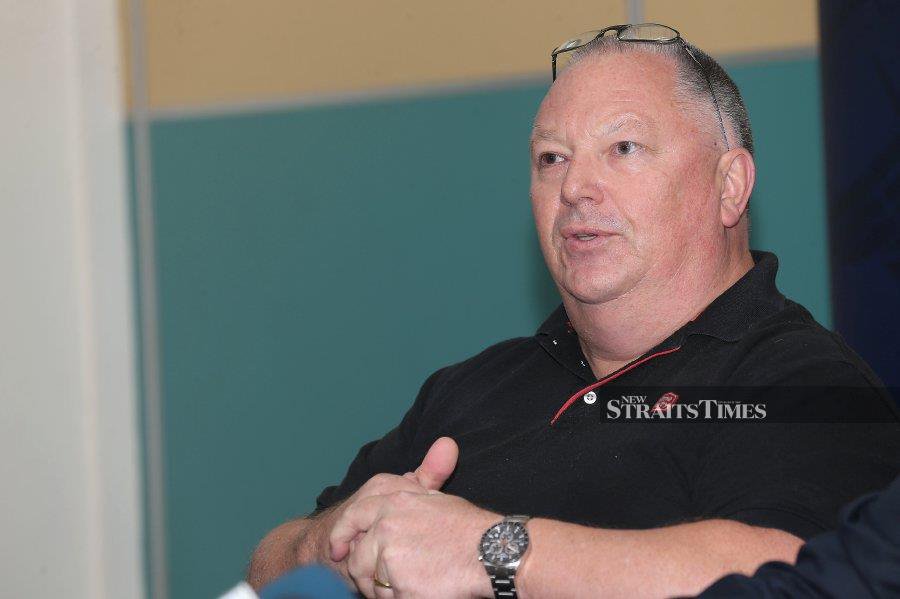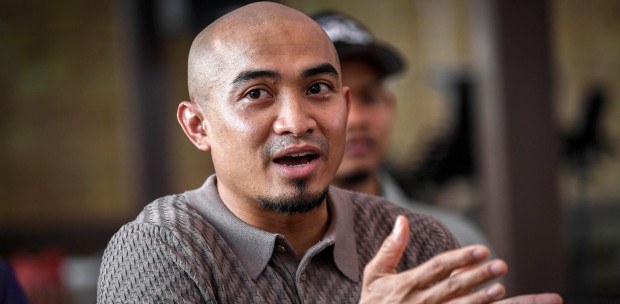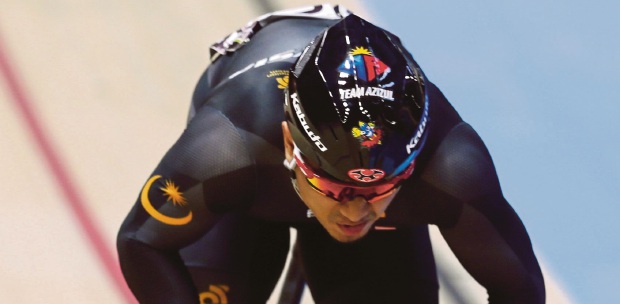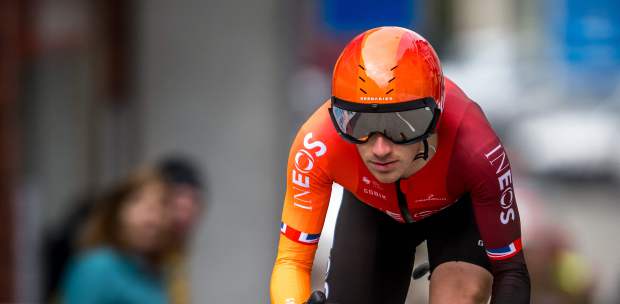KUALA LUMPUR: The "arms race" in track cycling is heating up as the Paris Olympics loom.
Recently, the Japan team unveiled their new left-sided drivetrain bike at the Japan Track Cup. Last month, the British team came out with bikes showing advanced aero handlebars and front forks.
National head coach John Beasley said he is impressed with the Japanese bike but unsure of the left-hand drivetrain which has been used by American riders.
"Japan has an impressive-looking bike (though) I'm not sure about the left-hand drive.
"I have seen it before a few times with the US team. That's not too different as there is not much of a performance-gain in having the drive chain on the left. If there was, everyone would have followed suit. It has been tested and the gain is extremely small for the big investment of making special wheels," said the Australian.
"This I feel is more for their need for the bike to look very different. The bike is nice in the aspect of the wide front and rear forks concept which was thought of to try and trip the wind around the legs. This could be a real performance gain.
"The disappointing part is the UCI has rules stating that you cannot build aero trips into the design and production of the bike unless they are structural. If you look at the front fork, the Japanese engineers have built aero strips into the fork, and it's definitely put there for a reason. Not a structural reason, so they have found a way to get around the UCI rule, good on you Japan.
"The British bike is nice and is very aero. It's the bike that the Japanese and the French-look bike have tried to copy and make their adjustments and version. I must say the French-look bike gets my vote for the ugliest bike on the market, whereas the British bike gets my vote as the best wide fork bike on the market. The handlebars are very nice and I'm sure there is a small performance gain in the new handlebar and fork."
Malaysia's Olympics-bound track cyclists will also receive upgraded bikes. Since 2017, the National Sports Institute has developed advanced bikes, partnering UK specialist Totalsim Ltd for the 2021 Tokyo Olympics, investing RM13 million.
Launched in 2020, these titanium and carbon fibre bikes are among the lightest, stiffest, and most aerodynamic in their class.
Beasley said it is important for Malaysia to keep abreast with the technology which could make the difference between winning and losing at the Olympics.
He revealed that in the early 2000s, the British formed the "Secret Squirrels Club," a group of experts, including Formula One engineers, to explore marginal gains. This innovative approach led to their world dominance in track cycling from 2008 to 2016.
But after 2016, other nations began seeking their marginal gains, and this led to the end of British dominance in Olympic track cycling.
"It's extremely important to keep up with technology. If you don't, you could find yourself lining up on the start line at the Olympic Games extremely disadvantaged, which could be the difference between being on the podium or not. That's how important chasing marginal gains is.
"You can train for years to try and gain 20 watts of power, though through working with smart engineers they can find ways to reduce drag which in turn gives you free speed for the same amount of power.
"In track cycling, our male sprint athletes are going at speeds of up to 86
kilometres per hour. Next time when you're in your car driving at 86 kph, place your arm outside the window and feel the forces pushing against your hand. For years we, coaches, only thought of ways to increase power.
"I look back on Rio (Olympics) and still ponder on how good the performance was from Azizulhasni (Awang). We lined up on that start line severely technically disadvantaged, but he found a way to win the bronze medal.
"I really believe we have a great bike ourselves, second to none."





